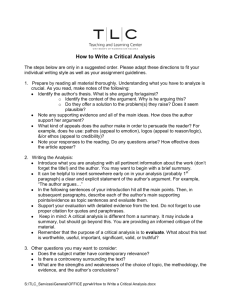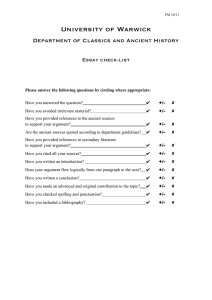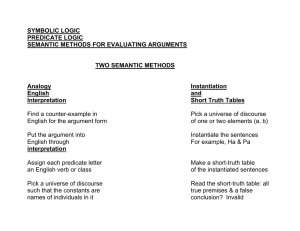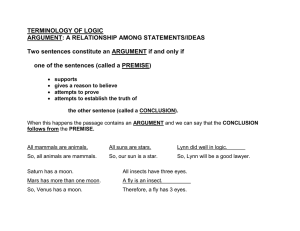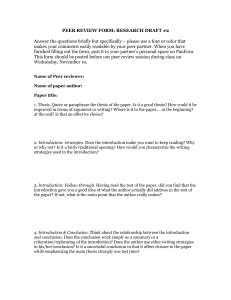Topic Assignment - Montessoriib.org
advertisement
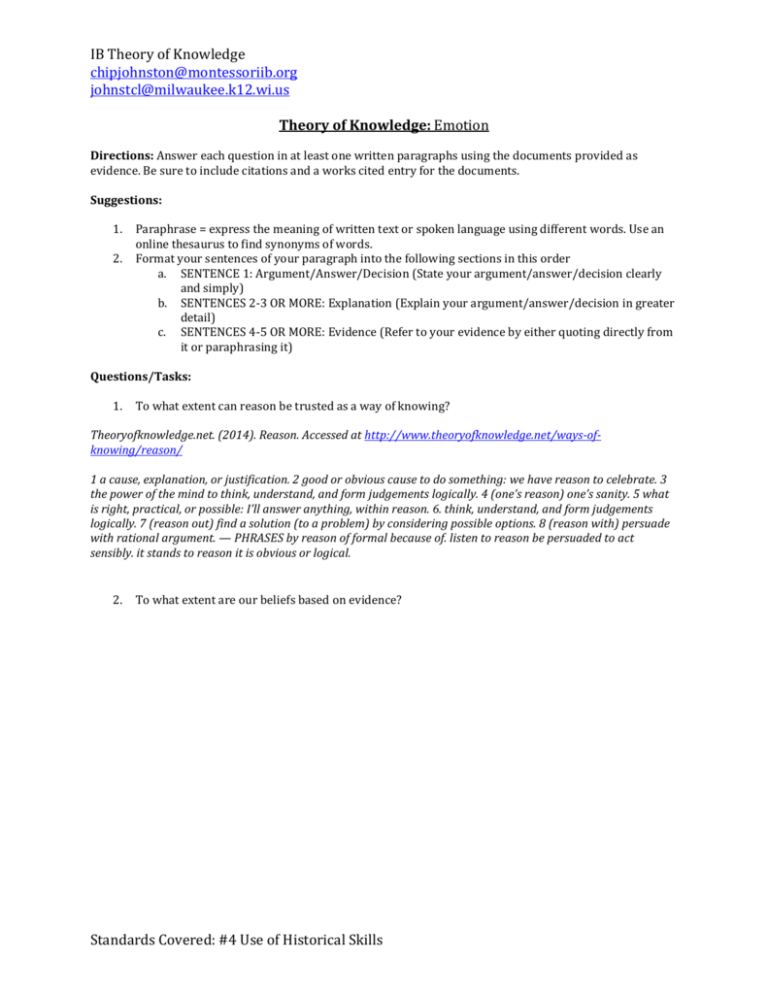
IB Theory of Knowledge chipjohnston@montessoriib.org johnstcl@milwaukee.k12.wi.us Theory of Knowledge: Emotion Directions: Answer each question in at least one written paragraphs using the documents provided as evidence. Be sure to include citations and a works cited entry for the documents. Suggestions: 1. 2. Paraphrase = express the meaning of written text or spoken language using different words. Use an online thesaurus to find synonyms of words. Format your sentences of your paragraph into the following sections in this order a. SENTENCE 1: Argument/Answer/Decision (State your argument/answer/decision clearly and simply) b. SENTENCES 2-3 OR MORE: Explanation (Explain your argument/answer/decision in greater detail) c. SENTENCES 4-5 OR MORE: Evidence (Refer to your evidence by either quoting directly from it or paraphrasing it) Questions/Tasks: 1. To what extent can reason be trusted as a way of knowing? Theoryofknowledge.net. (2014). Reason. Accessed at http://www.theoryofknowledge.net/ways-ofknowing/reason/ 1 a cause, explanation, or justification. 2 good or obvious cause to do something: we have reason to celebrate. 3 the power of the mind to think, understand, and form judgements logically. 4 (one’s reason) one’s sanity. 5 what is right, practical, or possible: I’ll answer anything, within reason. 6. think, understand, and form judgements logically. 7 (reason out) find a solution (to a problem) by considering possible options. 8 (reason with) persuade with rational argument. — PHRASES by reason of formal because of. listen to reason be persuaded to act sensibly. it stands to reason it is obvious or logical. 2. To what extent are our beliefs based on evidence? Standards Covered: #4 Use of Historical Skills
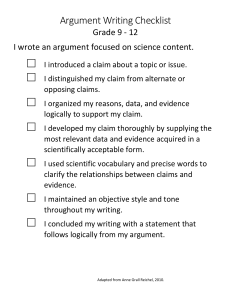

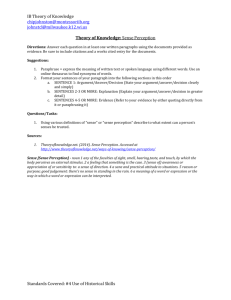
![Group feedback for faculty and students [DOCX 14.39KB]](http://s2.studylib.net/store/data/015095685_1-ee9d811756aa90ae625fef5ff4e626ec-300x300.png)
